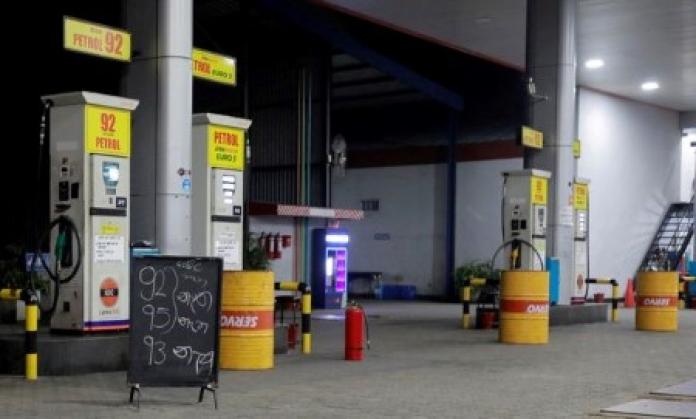COLOMBO, (Reuters) – Sri Lanka paid $35 million for a diesel shipment today and has another large payment due this week, an official said, as the country struggled to import fuel for power generation and to keep its transport system running amid dwindling foreign exchange reserves.
Residents in the island nation of 22 million people, which is in the throes of its worst economic crisis in years, have experienced hours-long power cuts as power plants and petrol pumps have run dry.
The crisis has raised fears the country may be headed for a sovereign default this year.
A bus owners’ association warned that much of its fleet would be paralysed within days unless fuel supplies were restored.
“The problem facing the country is not a power generation or fuel shortage but the non-availability of dollars,” Energy Minister Udaya Gammanpila told parliament on Wednesday.
Sri Lanka’s foreign exchange reserves hit $2.6 billion at the end of January, according to central bank data, but some analysts said usable reserves were significantly less than that.
Reserves stood at $7.5 billion in January 2020.
In 2021, average monthly imports stood at $1.7 billion, compared to $1.3 billion a month in 2020.
On Wednesday, the state-run Bank of Ceylon released $35.3 million to pay for a 40,000-tonne shipment of diesel that had been waiting at the country’s main port of Colombo for four days, said Energy Ministry Secretary K.D.R Olga.
But a second ship carrying a similar amount of diesel worth $33 million is due to arrive at Colombo Port on Sunday.
“We will need fresh funds to make that payment,” Olga said.
A 38,300-tonne petrol shipment for $33 million procured on a letter of credit has already reached Sri Lankan waters and can be offloaded, she said.
The diesel shortage has hit Sri Lanka’s power generation with power cuts increasing to more than four hours today.
Outside fuel stations, some of which have received limited amounts of supplies from state-run Ceylon Petroleum Corporation, drivers formed long queues to refill their tanks.
“We are calling on the government to resolve this issue quickly or people will be left stranded on the streets,” said Anjana Priyanjith, secretary of the Private Bus Owners Association, which represents a fleet of around 9,000 vehicles.
“This is a very serious situation,” he said.
Sri Lanka’s useable reserves at the end of January were around $790 million, forcing the government to ration foreign exchange even for critical imports, said Deshal de Mel of the Colombo think-tank Verite Research.
The country has to settle $1.84 billion of liabilities in the months of February and March 2022, de Mel said. Overall, Sri Lanka has to meet about $4 billion in debt repayments in 2022.






